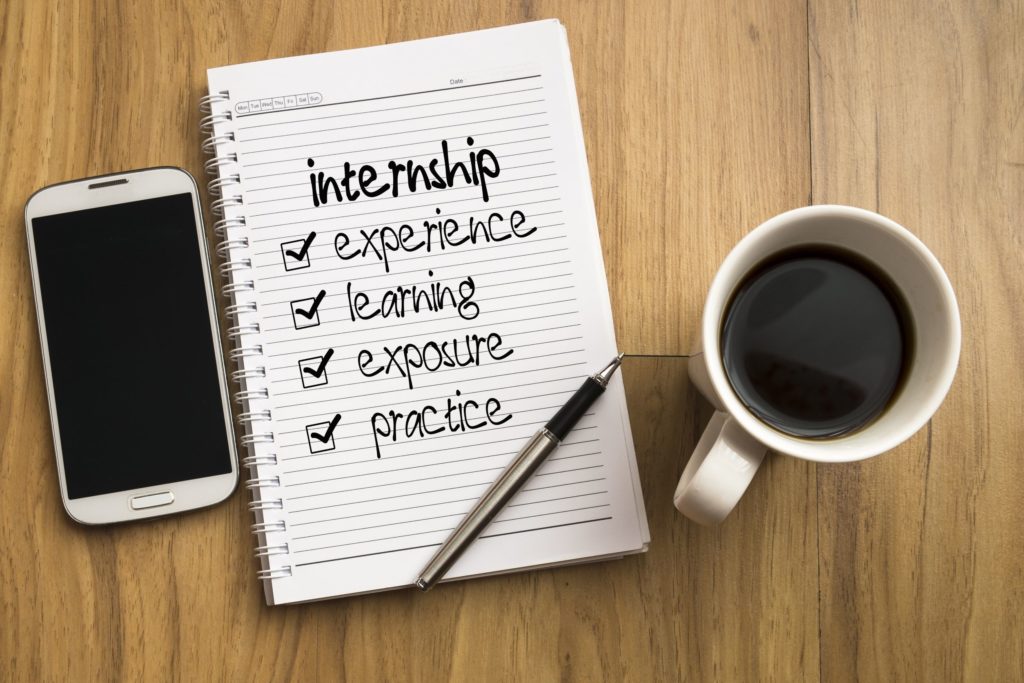The world of education offers so many different career opportunities. Throughout a teacher’s tenure, they may become passionate about a specific area such as special education or administration. To be qualified for these positions, the educator may have to return to school and complete a master’s degree program. Most education master’s degrees require an internship.
These internships can range from 60 field hours to more than 300 hours. Be sure that you have researched the programs before you begin and have a plan to complete the internship requirement!
The Benefit of Graduate School Internships
Experience of Your New Role
Although an education internship may seem extremely time-consuming, it is one of the most essential parts of a degree program. It is the culmination of all of your studies and you can now experience what it will be like when you take on your new role. As an educator, you will be able to take your experiences from the classroom and see how those can be used to help you in your new role as administrator, reading specialist, ESL teacher, or special education director.
For me, I had taught physical education for seven years before I realized that I wanted to move into an administrative role as principal. I had witnessed both strong and weak in my schools and knew that I wanted to bring my passion to a leadership role.
The administration degree program I enrolled in did require several internships. I was very fortunate because I had a good relationship with the principal at my school who allowed me to shadow him during my prep periods. I could also attend meetings with him after school and learn the ins and outs of administration.
What Will You Learn During Your Internship?
Job Specifics
Depending on what area you are getting your degree, you will learn the specifics of that job. Each role in education has their specific nuances that you will be exposed to during your internship.
Day-to-Day Schedule
In general, you will learn the day-to-day schedule. You will see all the different tasks you will have to complete in a week and throughout the month. You will see how every day is different and how you need to be ready to react to whatever is thrown at you that day.
Leadership Traits
If you are going into administration, you will see different leadership traits. You need to self-reflect and decide what leadership style you have and what works best for the school you will be working in. Suppose you are getting a degree in curriculum development. In that case, you will learn how to evaluate and analyze the needs of the student body and how to connect that to the best materials. No matter what, your internship will give you the best experience into what your new job will be like.
Best Practices to Keep in Mind
Cohort Support
In every school building, there are teachers who have a desire to go back to school and pursue advanced degrees. In all of my graduate school internships, I worked with a cohort of colleagues to push through together. Our cohort allowed for us to bounce ideas off of each other, carpool to classes if necessary, and hold each other accountable during our program. Having someone to share your experiences with can prove beneficial!
Find a Good Mentor
Most graduate programs do not have internships set up for their students. It is on you to find your placement and make the connections. Make sure that you have this set up before the start of the semester for your teaching internship. You also want to be sure that the person you are going to work with is a good fit. Mentors should be informative yet allow you to have your own experiences. A mentor needs to be available to you. A mentor can make or break your internship, so make sure you find a great one.
Time Management
Many people completing a master’s degree program are doing it while working full-time. The hours can be overwhelming if you are teaching and completing an internship. Do your research and ask others in your field how best to split your time and complete your internship.
Don’t Be Afraid to Ask Questions
An internship is about learning and experiencing a job’s new aspects. You are not an expert in this field yet. If you do not understand something or if you do not know why your mentor did something, just ask. This is similar to the student teaching internship you did in your undergrad, you have to take this graduate school internship as a time to be a student and learn from the people you are shadowing.
Set Goals
Think about what you have learned in the classes you completed in the degree program. Then, work with your mentor and create goals you want to reach throughout the internship. Doing this will ensure that you have thought about the many different parts of the job.
Reflect on Your Experience
All of these questions will help you wrap up your internship and help you look forward to your new career path:
- What did you see?
- What did you learn?
- What worked?
- What did not work?
- How can you bring what you have done into your new job?
- What did you wish you would have done if you had more time?
Seek Admin Support
Finally, regarding internships, make sure your current administrative team is aware of your desire and acceptance into a program. Having a supportive administrative team is crucial to the success of your internship. Most administrative degree internships require you to shadow a school-level leader outside of your own building for at least one full day, and could even involve completing administrative tasks both in your building and outside your building. Talking with your current leadership team will let them know of your needs and provide them with opportunities to help you grow.
Additionally, your best resume is your current job. As you complete your internship requirements, the things you have learned and experienced are great talking points for future positions where you can put your newly acquired skills to the test.
Ultimately, teachers are always learning. We seek to learn new and creative ways to work with our students, and we strive to be better teachers daily. Finding the right graduate school program and subsequent internship opportunities can benefit teachers in a variety of ways, leading to better outcomes for our students and schools.
Ready to find the right graduate school program? Check out our 190+ available masters, doctorates, endorsements, and certifications to advance your career today!




